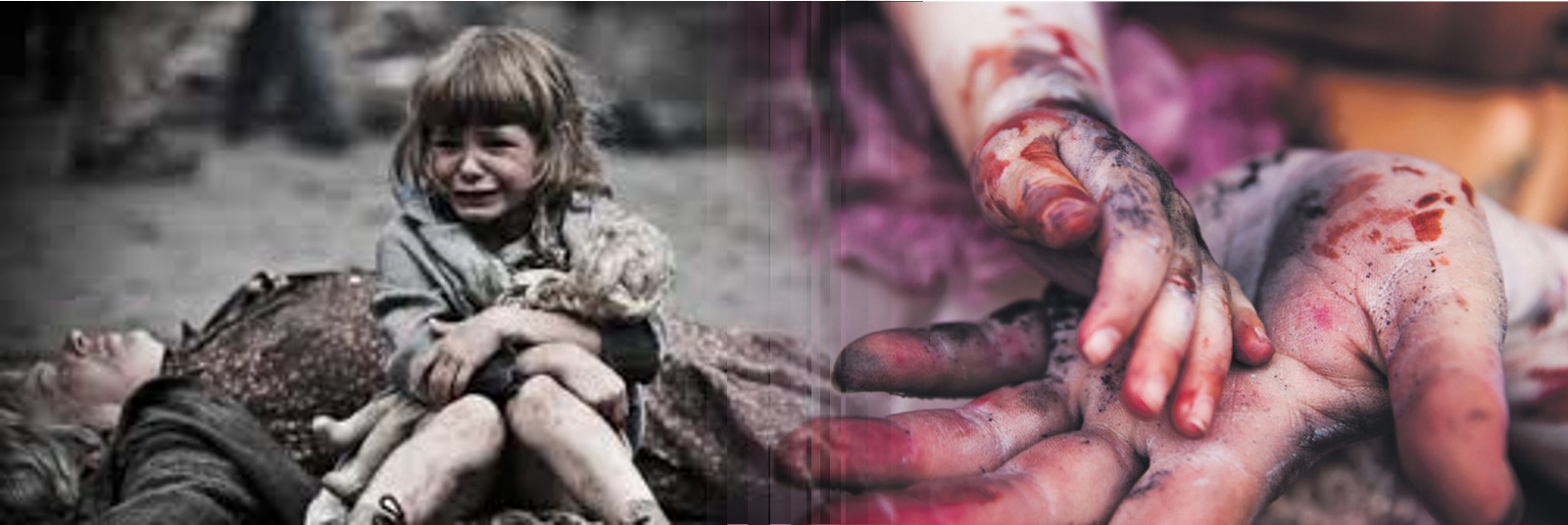Myanmar lost its democratic momentum, future challenge

After a decade of the establishment of an unstable democracy, Myanmar has fallen once again on the hands its military, on the 1st of February. Daily images show not only the tremendous inhumanity of the bloodthirsty junta but also a remarkable wave of democratic resistance all over the country of the 57 million people and the 153 different ethnicities. Despite its weak economy, one of the least developed in Asia (Beech, 2021), the measures taken by the international community to restrain the power of the new authoritarian regime have been not only ineffective but also incomplete. Even if the situation is more complex than it seems, it is of primordial importance to support the democratic forces of the country.
Myanmar’s army: L’Etat c’est moi
To better understand the complexities of the realities in Myanmar, it is important to understand the central place of its army, or Tatmadaw in the local dialect, in national politics. Being a part of the British Empire from 1824, Myanmar, also formerly known as Burma, gained its independence in 1948 thanks to the liberation movement of its national hero Aung San. Thus the country became an independent republic until 1962 when the army launched the first successful coup d’état and established strict military dictatorship with communist characteristics, similar to those of its neighbors at the time, promoting the “Burmese Way of Socialism”. Having already been modernized and heavily financed even before the coup, the military started acquiring more resources, responsibilities and power in traditionally non-military sectors (Bünte, 2011: 3). However the decades of repressive rule, combined with isolationist economic policies and a programme of nationalization of Burma’s major enterprises, led not only to a degradation of its economy and the booming of the black market, but also into a widespread feeling of contestation, which was expressed in the failed elections of 1988 (Maizland, 2021; Bünte, 2021). The rejection of the elections’ results by the junta, in which the main opposition party, the National League of Democracy (NLD) came up victorious, triggered a massive movement of protests that were brutally suppressed and led to death more than 3.000 people. It was for that reason that Aung Sun Suu Kyi, the first democratically elected leader of the country in 2011 and daughter of the national hero Aung San, was nominated a Nobel Prize in 1991, for its participation in those protests (Maizland, 2021). Years later, she took the leadership of the NLD and she won the first free elections after 49 years of military rule.
2011-2021: a flawed democracy
Even though it seemed like democracy had prevailed and the military had returned to its barracks, the elections of 2011 were a de facto strategic move of the generals. As Bünte notes “military’s withdrawal from the apex of power in March of 2011 did not mean its full retreat from politics”, as it permitted civilian rule without letting its control over the government (2011). Given the fact that the constitution of 2008, written by the Tatmadaw was still in place, the newly elected government was practically forced to negotiate policies with the military. On the other hand however, despite the early praises of the Aung Sun Suu Kyi’s government, the country was also marked by the atrocities towards the Muslim minority of Rohingya in the Province of Rakhine (Shivakoti, 2017: 2). More precisely, already for 2012 incidents of violence towards the stateless Rohingya (as they are not recognised by the Government of Myanmar as one of the country’s 135 ethnic groups), started fleeing the country, finding temporary shelter near the borders of the neighboring Bangladesh. The situation did not take long to get out of hand, when in 2017 mass waves of violence against the Muslim minority, created a full blown humanitarian crisis, that the United Nations report described as being “at the final stages of genocide” (Shivakoti, 2017). Ergo, the government received harsh criticism from the UN as well as from many states, for its inadequate aide towards the Rohingya and its incapability to contain the military and the different paramilitary groups that took part in the deadly episodes.
2021: Back to the Future?
In that context, the military did not hesitated to seize the opportunity for a new coup d’état on the beginning of February of 2021. After a landslide victory of the NLD in the second national elections in 2020, where the party won 396 out of 476 seats of the National Assembly, the military contested, once again the results, alleging voter fraud and taking back the power after a decade in the shadows. the citizens reacted rapidly and massively against the coup, unlike the international community. The grand majority of the working population refused to show up to their work and 90% of the government services have seized, as a way to paralyze the country and weaken the regime (Beech, 2021). At the same time daily protests continue to take place around the country, meeting brutal force from the military costing the lives of more than 500 people (Reuters, 2021). On the international level, many states have reacted rapidly but reluctantly. On the one hand, many western governments imposed economic sanctions on military officers and on companies controlled by the regime. The United States has also frozen 1 billion US Dollars in assets held by Myanmar, while Australia quickly suspended its military cooperation with Myanmar and redirected funds towards humanitarian aid to the democratic opposition of the country (Beech, 2021; Guardian, 2021). On the contrary China followed the another path, continuing to support the State Administration Council (the official name of the junta), through the imports of natural gas, worth more than 90 million a month as well as of other natural resources, such as jade and timber (Beech, 2021). Therefore, as different states support both the opposing sides, clashes between civilians and the military will likely continue in the near future, with the UN to warn that the bloodshed could lead to a new Syria (UN, 2021).
How to prevent a catastrophe?
If one is to decide on how to limit the massacres in Myanmar and revamp the hopes for democracy, it has to take into to consideration the different factors that make this situation so complex. First of all, China views the crisis in Myanmar as an opportunity for the West to contain the Chinese influence in its backyard. Hence China is willing to defend Myanmar from an international intervention, not only because of its preference for stability and its disapproval for democracy, but also to secure a strategic free transport corridor to the Indochina peninsula and a buffer at China’s frontier (Li & Zheng, 2009; Aung, 2020). Therefore Beijing will continue to support the Tatmadaw, as it does since the independence of Myanmar, rendering most of the sanctions imposed by the West as ineffective (Kausikan, 2021). Furthermore one has to understand the cleavage between civil and military relationship in the country that will continue to exist even after a future fall of the junta.
Ergo, it is proven that sanctions not only do not work, as they push the regime closer to Beijing, but also harm the general population that already suffers from poverty. Thus an effective policy could be to redirect generous amounts of humanitarian assistance to support the democratic opposition to continue their struggle for liberation, pushing the regime into the negotiations table with the democratic opposition. Furthermore, a new constitution would definitely have to be negotiated between the military and the forces of the civil society under the auspicies of international and regional organisations like the UN or/ and the ASEAN. Finally the strengthening of the institutional capacity that has been in a state of atrophy is equally important, after decades of military rule.
Making this effort, would not only reintroduce the importance of multilateralism in an era that starts to resemble the Cold War, but also will reignite the trust in the US-led world order and the values-based foreign policy.
References
Aung, A. (2020). The International Politics of the Rohingya Crisis in Myanmar: China, Japan, and the United States. Center for Southeast Asian Studies, 134: 1-50.
Australia suspends military cooperation with Myanmar following last month’s coup. (2021, March 7). Guardian International Edition. Retrieved in 2021, April 14 from https://www.theguardian.com/world/2021/mar/08/australia-suspends-military-cooperation-with-myanmar-following-last-months-coup
Beech, H. (2021, March 19). Myanmar Protesters Answer Military’s Bullets With an Economic Shutdown. The New York Times. Retrieved in 2021, April 14 from https://www.cfr.org/backgrounder/myanmar-history-coup-military-rule-ethnic-conflict-rohingya
Bünte, M. (2011). Institutionalising Military Rule in Burma/Myanmar: .External and Internal Factors. GIGA Institute of Asian Studies. Germany
Kausikan, B. (2021). The Dangerous Impasse in Myanmar. Foreign Affairs. Retrieved in 2021, April 14 from https://www.foreignaffairs.com/articles/burma-myanmar/2021-04-09/dangerous-impasse-myanmar
Li, H. Y., & Zheng, Y. (2009). Re-interpreting China’s Non-intervention Policy towards Myanmar: leverage, interest and intervention. Journal of Contemporary China, 18(61), 617–637.
Maizland, L. (2021) Myanmar’s Troubled History: Coups, Military Rule, and Ethnic Conflict. Council on Foreign Relations. Retrieved in 2021, April 14 from https://www.cfr.org/backgrounder/myanmar-history-coup-military-rule-ethnic-conflict-rohingya
Myanmar bloodshed could lead to new Syria: UN human rights chief (2021, April 13). UN. Retrieved in 2021, April 14 from https://news.un.org/en/audio/2021/04/1089662
Myanmar death toll tops 500 as protesters defy junta’s forces (2021, March 29) Reuters. Retrieved in 2021, April 4 from https://www.reuters.com/article/us-myanmar-politics-idUSKBN2BL0C2
Shivakoti, R. (2017) ASEAN’s role in the Rohingya refugee crisis. Forced Migration Review.






